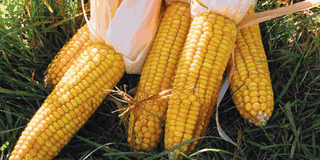Solution to killer food poisoning found

What you need to know:
- Aflatoxin – a poisonous chemical occurring in soil, produced by the naturally-occurring fungi ‘Aspergillus flavus’ – is a major threat to public health and food security, according to experts.
An innovative technology known as ‘Aflasafe’ can effectively reduce poison (aflatoxin) in maize and groundnuts by over 85 per cent, according field trials carried out in Tanzania.
Aflatoxin – a poisonous chemical occurring in soil, produced by the naturally-occurring fungi ‘Aspergillus flavus’ – is a major threat to public health and food security, according to experts.
Aflasafe was first developed by the United States Department of Agriculture (USDA). The International Institute of Tropical Agriculture (IITA) –non-profit institution that generates agricultural innovations to meet Africa’s most pressing challenges of hunger, malnutrition and poverty – is currently spearheading Aflasafe adoption in Africa, doing so with help from its partners.
It is already in use in Nigeria, Kenya and The Gambia. Nine other African countries are at various stages of developing their country-specific strains
Researchers say Aflasafe – a bio-control product developed using the same family of fungi as those that produce aflatoxins – can help keep food crops safe. It does not produce the poison, and is able to out-compete the fungi that produce aflatoxins.
Through field trails carried out for two years on Aflasafe, researchers from IITA and Tanzania’s ministry of agriculture reduced aflatoxin contamination in maize and groundnuts to levels that are fit for human consumption. The trial findings were recently presented at a stakeholders’ meeting in Dar es Salaam and four other administrative regions and 11 districts that are aflatoxin hotspot areas, and were targeted for trials. A plant pathologist at IITA, Dr George Mahuku – who is also the lead researcher in Tanzania – said the technology is tailored on Tanzanian settings, using fungi exclusively from the country. “It is an all-natural product that is made up of types of the fungi ‘Aspergillus flavus’ that can never produce poison,’’ he said.
To apply the technology, farmers simply scatter the aflasafe in their fields 50 days after planting groundnuts… Or three weeks to flowering for maize.
According to a 2016 report by the Nelson Mandela African Institution of Science and Technology (NM-AIST), every year Tanzania loses over $264 million due to aflatoxin contamination.
The report, whose findings made headlines in Tanzania early this year, documented cases of 14 people who died in 2016, and 54 others who fell ill after eating contaminated cereals in Dodoma region.



